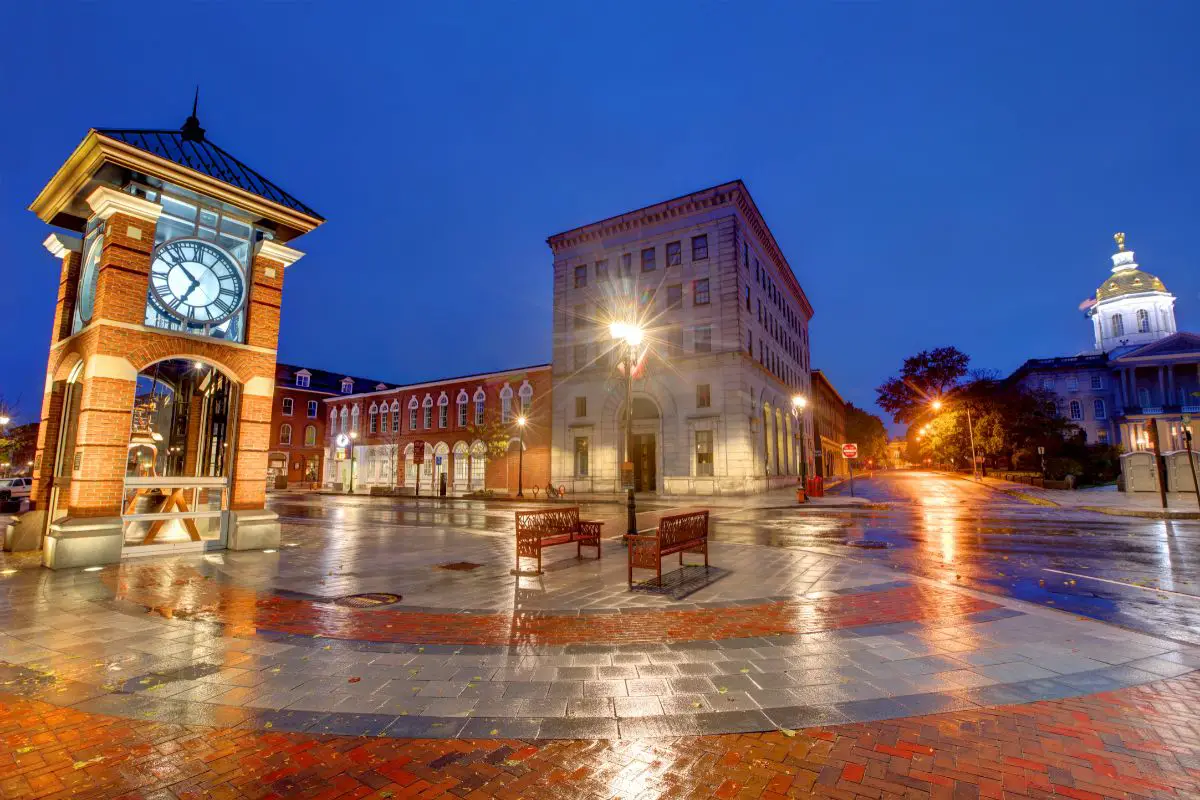New Hampshire is no stranger to colonization. Since it was founded in 1623, New Hampshire has been familiar with the religious and territorial friction that came with colonization – such disputes and demographic changes have had a profound impact on New Hampshire as we know it today.
In this article, we’ll take you back in time and explore New Hampshire’s colonial history, who influenced its colonies, and how such drastic changes to the area have influenced the New England state as we know it today.
New Hampshire: Native American Population
Before New Hampshire first came into contact with the English, it’s thought that around 3,000 Native Americans lived in the area. There are no recognized tribes in the area today, and many were forced to leave the area when the English colony eventually took hold of the area.
The Native American tribes in New Hampshire had a vibrant life and consisted of various clans and other tribal entities. Most of the tribes living in New Hampshire were called the western Abenaki, but other tribes existed, too, such as the Concord and the Penacook.
The Western Abenaki has its roots in Southern New Hampshire, and along with the Nashua tribe, they influenced many of the stories in New Hampshire today. Most of the tribes were thought to settle near the Great North Woods, which flowed right through to Northern Massachusetts.
The Nashua tribe, another influential tribe in the area, settled near the Nashua and Merrimack rivers. They developed their own villages and lived successful lives, spending much of their time farming, hunting, and fishing.
However, this tribe (like many others) were thought to be subservient to the Penacooks, who had a huge influence on tribal life in Southern New Hampshire.
The English Colony In New Hampshire
When the English Colony entered New Hampshire, life for the Native American tribes changed significantly. As contact with English colonies increased, the population of the tribes started to decrease. Disease, migration, and war were rampant, and by the 1700s, few Native Americans remained in colonial areas.
The English Colony first came to the area in 1623, when a collection of grants by Captain John Mason and others gave them permission to set up colonials in the area. Fish merchants from London, amongst many others, moved to the area and established a fishing colony near the Piscataqua River.
Other divisions were soon established, and Scotsman David Thomson set up a factory and salt-drying fish racks. Another division was set up by brothers Thomas and Edward Hilton eight miles away. Exeter, Dover, Hampton, and Portsmouth were other main settlements for the English colony.
Between 1641 and 1670, the Massachusetts colonial government stepped in. Following a series of disputes, New Hampshire became a royal province in 1679, and more territorial feuds continued until the American revolution.
New Hampshire was one of 13 colonies, and Benning Wentworth served as colonial governor from 1741 to 1767, the longest reigning royal governor of any of the colonies.
In 1772, the state was divided into five countries, and five more have been added since the 1800s.
Here’s a brief look at the settlements established in New Hampshire during the colonial age:
- Dover: Established in 1623 by Edward Hilton
- Portsmouth: Originally settled in 1630, Portsmouth was later renamed Strawbery Banke, and then incorporated as a town in 1653
- Exeter: Established in 1638. It was acquired by John Wheelwright, the town’s founder. Wheelwright was banished from Massachusetts due to his religious leanings and later fled to New Hampshire to establish Exeter.
New Hampshire And Massachusetts Bay
After these primary settlements were established, Massachusetts Bay started to expand, and it claimed much of the land in New Hampshire in around 1638. As the English Revolution took place across the world, New Hampshire was largely protected by Massachusetts.
The Massachusetts Bay was another colony and an English settlement established in 1630. It was the first English colony with a board of governors that did not live in England.
In 1680, New Hampshire separated from Massachusetts and became the royal province.

New Hampshire: Sectionalism and Class
When the American Revolution began, New Hampshire was considered a divided province. Across the social scale, life varied dramatically.
Wealthy investors and merchants built large homes throughout the area and boasted of their luxurious decor. On the other hand, the permanent working class worked primarily as mariners, servants, and laborers. Slavery was also rife in the area.
Towards the center and west of New Hampshire, most citizens worked as farmers, with many moving from Massachusetts and Northern Ireland. Their own towns often featured gristmills and sawmills punctuated by the occasional tavern or school.
New Hampshire: Breaking Away From Colonialism
Under colonial rule, New Hampshire’s existence was turbulent.
Although New Hampshire broke away from the arm of the Massachusetts Bay colony, things still proved difficult. At first, settlers lived peacefully alongside native inhabitants, such as the Pennacook tribe. However, tensions grew, and changes in leadership caused friction.
American Indians fled from Massachusetts to New Hampshire, and in 1684, colonists in Dover prepared for attacks by the Penacook. When the Native Indians attacked Dover in the Cochecho Massacre, things turned even sourer.
New Hampshire and Massachusetts continued to fight over territory amidst the backdrop of other tensions. Land claims by each area conflicted, and eventually, the king was called upon to establish a final settlement of its boundaries in Massachusetts.
As this unfolded, New Hampshire won favorably in 1741 and gained more territory and Benning Wentworth as governor. New Hampshire eventually established its own constitution and became the 9th to implement the U.S. Constitution.
Benning Wentworth died in 1770, and his nephew Sir John Wentworth succeeded him. However, John Wentworth remained loyal to the English crown and went on to serve as lieutenant governor in Nova Scotia, where he served until his death in 1820.
Pre-revolution, several important events unfolded, such as the removal of guns and powder at Forts, participation in the Battle of Bunker Hill, the signing of the declaration of independence, and victory at the Battle of Bennington.
New Hampshire Today
New Hampshire is still bordered by Massachusetts to the south and Vermont to the west. It’s one of the six states of New England and one of the 13 original U.S. States. New Hampshire has a motto of ‘Live Free or Die’.
Today, New Hampshire is one of the only states with neither income or sales taxes. It collects its revenue in unique ways, and most of its services are funded through taxation.
New Hampshire has a strong economy with a low poverty rate, and it has a 5% income tax rate with a 7% corporate income tax rate. It does not have a state sales tax, and New Hampshire doesn’t levy any local sales taxes.
The Bottom Line
New Hampshire has come a long way since its time under colonial rule. However, the colonies that settled there have had a profound influence on New Hampshire, even today.
After decades of struggle and strife over territory, New Hampshire emerged as one of the strongest states in the U.S, despite its turbulent history.



